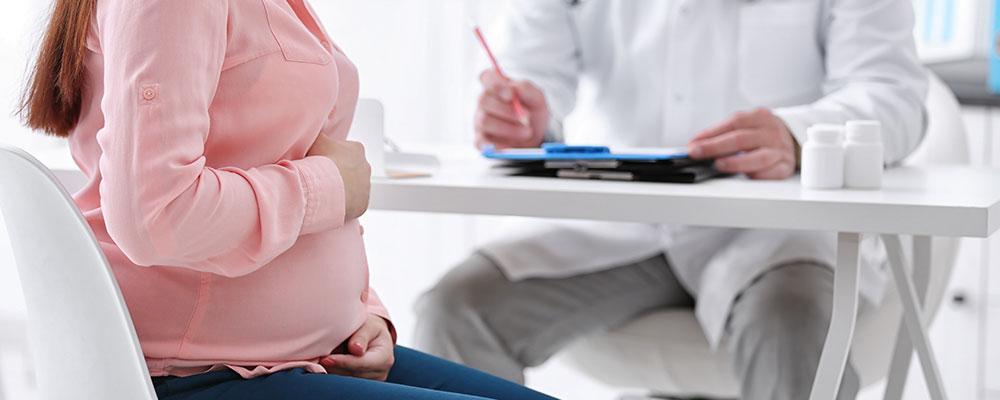Chicago, IL 60601
FREE CONSULTATIONS 312-462-4200
TOLL FREE 833-462-4200
Maternal Birth Injury FAQs

Frequently Asked Questions About Injuries to Mothers During Childbirth
Are Mothers More Likely to Die During Childbirth Than Children?
While the rate of infant mortality has fallen significantly throughout the past few decades, the rate of maternal death in the U.S. has risen over that same period. The current maternal mortality rate in the United States is 26.4 deaths per 100,000 births, and this is much higher than in any other developed country.
What Complications During Pregnancy Can Lead to a Maternal Injury?
Mothers who experience preeclampsia, or high blood pressure during pregnancy, may suffer serious injuries, including organ failure, strokes, seizures, and heart disease. Placental abruption can lead to blood loss that may cause harm to the mother or child. Gestational diabetes can cause high blood pressure, or a mother may experience life-threatening ketoacidosis. Pregnant mothers may also experience blood clots which can lead to deep vein thrombosis or a pulmonary embolism.
What Complications Can Cause Maternal Injuries During Labor and Delivery?
Prolonged labor may occur for a variety of reasons, including the child's head is too large to easily move through the birth canal or contractions not being strong enough. This can increase the risk of maternal injuries such as infections or vaginal lacerations. Mothers may also experience post-partum hemorrhaging, and if this is not addressed quickly, severe blood loss can lead to brain injuries, organ failure, or death.
Does the Risk of Maternal Injuries Increase if Labor is Induced?
Labor induction is usually safe, but it may lead to complications such as post-partum hemorrhaging. If the drug Pitocin is used to speed up labor, it can cause very intense contractions that may result in injuries such as uterine rupture, or it can lead to cardiac arrhythmia, high or low blood pressure, electrolyte imbalances that can cause brain injuries, or a subarachnoid hemorrhage that can result in brain damage, stroke, or maternal death.
How Can Maternal Injuries Be Avoided if the Child Is in the Breech Position?
Attempting a vaginal delivery when the child is not in the "head-first" position can be very dangerous. In addition to increasing the risk of birth injuries to the child, it can lead to vaginal tearing, labial injuries, post-partum hemorrhaging, and chronic pain. In most cases, a child in the breech position will be delivered through a Cesarean section.
Is There a Risk of Maternal Injuries During a Cesarean Delivery?
C-section deliveries are generally safe, but since this type of delivery is a surgical procedure, potential complications can cause serious injuries to the mother. In addition to the risk of hemorrhaging and infections, other organs could be damaged during the procedure, and in the worst cases, a Cesarean delivery can result in maternal death.
Can I Give Birth Safely After a Previous C-Section?
Uterine ruptures occur most often when a mother has a scar from a previous Cesarean delivery. While a vaginal birth after C-Section, or VBAC, can be performed safely, doctors should inform mothers of the potential risks, and during delivery, the mother should be closely monitored, and medical personnel should respond immediately to symptoms such as vaginal bleeding, irregular contractions, pain, abnormal heart rate, or changes in blood pressure.
Can Maternal Injuries Be Caused by the Tools Used During Delivery?
When doctors use tools such as forceps or vacuum extraction to assist in delivering a child, this increases the risk of vaginal lacerations and post-partum hemorrhaging. Injuries to the perineum, urethra, or bladder can lead to a long post-birth recovery period, chronic pain, and urinary or fecal incontinence.
What Options Do Mothers Have After Being Injured During Childbirth?
Medical facilities are prepared to quickly and effectively address potential injuries to newborn infants, but unfortunately, mothers often do not receive the same level of care following a birth injury. If you have suffered a serious injury while giving birth, you may be uncertain about how it happened, who was responsible, and what you should do next. At the Birth Injury Law Alliance, we will make sure you understand the steps you can take to receive the resources you need to make a full recovery. We offer free case evaluations, and we will help determine whether your injury occurred because of medical negligence while assisting you in addressing your needs. Contact us today by calling 312-462-4200.





